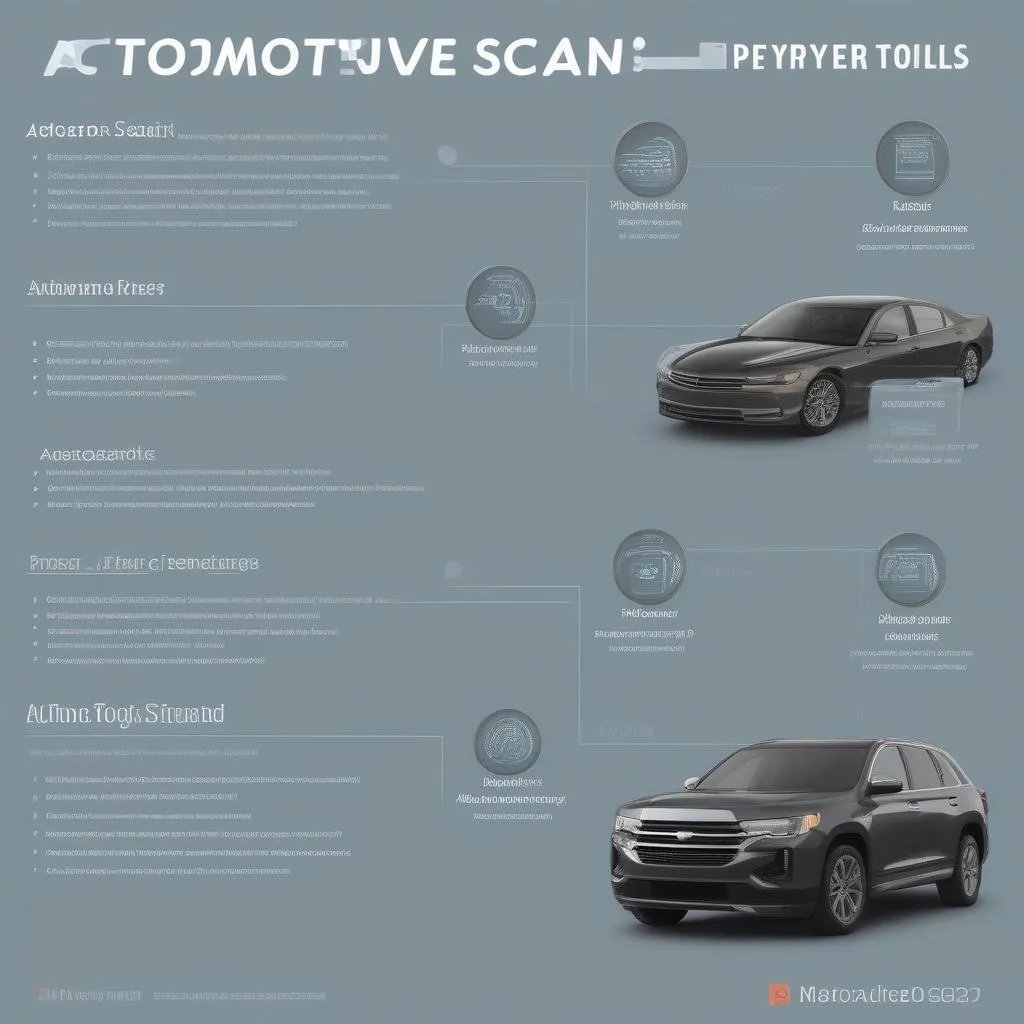Have you ever been stranded on the side of the road with a flashing check engine light, wishing you knew what was wrong with your car? That’s where a good automotive scan tool comes in handy. It’s like having a personal mechanic in your glove compartment, allowing you to understand and even diagnose your car’s issues. But with so many options on the market, finding the right scan tool can feel overwhelming.
This guide is here to help you understand what makes a good automotive scan tool and how to choose the one that best fits your needs.
Understanding the Importance of a Good Automotive Scan Tool
Before diving into the specifics, let’s understand why a good scan tool is essential for any car owner, mechanic, or enthusiast.
From a Mechanic’s Perspective:
Imagine working on a complex electrical issue in a 2018 BMW X5. Without a scan tool that can communicate with the vehicle’s systems, you’re essentially working in the dark. A good scan tool provides:
- Accurate Diagnostics: Quickly identify the source of check engine lights, ABS warnings, airbag issues, and more.
- Enhanced Efficiency: No more relying on guesswork. Scan tools streamline the diagnostic process, saving time and effort.
- Access to Advanced Data: Dive deeper into the car’s systems, view live data streams, and analyze sensor readings for a comprehensive understanding.
From a Car Owner’s Perspective:
A reliable scan tool empowers you to take control of your vehicle’s health:
- Early Issue Detection: Catch minor problems before they escalate into major (and expensive) repairs.
- Transparency & Peace of Mind: Understand the codes your car is throwing and make informed decisions about repairs.
- Potential Cost Savings: Avoid unnecessary trips to the mechanic for simple diagnostics or code resets.
What Defines a “Good” Automotive Scan Tool?
The term “good” is subjective and depends on your specific needs. However, some universal factors contribute to a scan tool’s quality:
1. Vehicle Compatibility:
- OBD-II & CAN Protocols: Ensure the tool supports these standard protocols for communication with modern vehicles.
- Make & Model Coverage: Consider your car’s make and model. Some tools specialize in specific brands (like our Dealer Scanner for European Cars), while others offer broader coverage.
- System Coverage: Do you need a tool for engine diagnostics only, or do you need access to ABS, airbags, transmission, and other systems?
2. Functionality & Features:
- Code Reading & Clearing: This is a basic function, but essential for understanding and resetting warning lights.
- Live Data Streaming: View real-time sensor data to analyze engine performance, fuel efficiency, and more.
- Bi-Directional Controls: Advanced tools allow you to perform functions like activating solenoids or running tests, crucial for in-depth diagnostics and component testing.
- Special Functions: Some tools offer unique features like key programming, injector coding, or DPF regeneration.
3. User Experience:
- Ease of Use: A user-friendly interface, clear navigation, and intuitive menus are crucial, especially for beginners.
- Display & Design: A bright, clear display and an ergonomic design contribute to a better user experience.
- Software Updates: Regular software updates ensure compatibility with newer vehicle models and often introduce new features.
4. Budget & Value:
Scan tools range from affordable basic models to professional-grade tools with hefty price tags. Consider your needs and budget to find the best value. Don’t compromise on essential features for a lower price if you’ll outgrow the tool quickly.
Common Questions About Automotive Scan Tools:
Q: What is the difference between an OBD-II scanner and a scan tool?
A: An OBD-II scanner is a basic tool that reads and clears engine-related codes. Scan tools offer broader functionality, including access to multiple vehicle systems, live data, and advanced functions.
Q: Can I use a scan tool to program car keys?
A: Some advanced scan tools offer key programming capabilities, but this varies depending on the tool and vehicle model.
Q: Do I need a professional mechanic to use an automotive scan tool?
A: While professional-grade tools require technical knowledge, many user-friendly options are available for DIY car owners.
Finding the Perfect Fit for You
Choosing the right automotive scan tool is an investment in your car’s health and your peace of mind. When selecting a scan tool, consider these factors:
- Your Level of Expertise: Are you a DIY enthusiast or a professional mechanic?
- Your Vehicle’s Make & Model: Ensure compatibility and adequate system coverage.
- Your Budget: Determine how much you’re willing to spend and prioritize features accordingly.
Need help choosing the right scan tool? Check out our article on The Best Scan Tools for TCM and ECM Diagnostics for a comprehensive comparison.
Take Control of Your Car’s Health
A good automotive scan tool is an essential tool for any car owner or mechanic. By understanding your needs and researching different options, you can find the perfect tool to keep your vehicle running smoothly.
Still unsure about which scan tool to choose or need help setting up your diagnostic software? Don’t hesitate to reach out to our team of automotive experts via Whatsapp at +84767531508. We’re available 24/7 to help you find the perfect solution.


